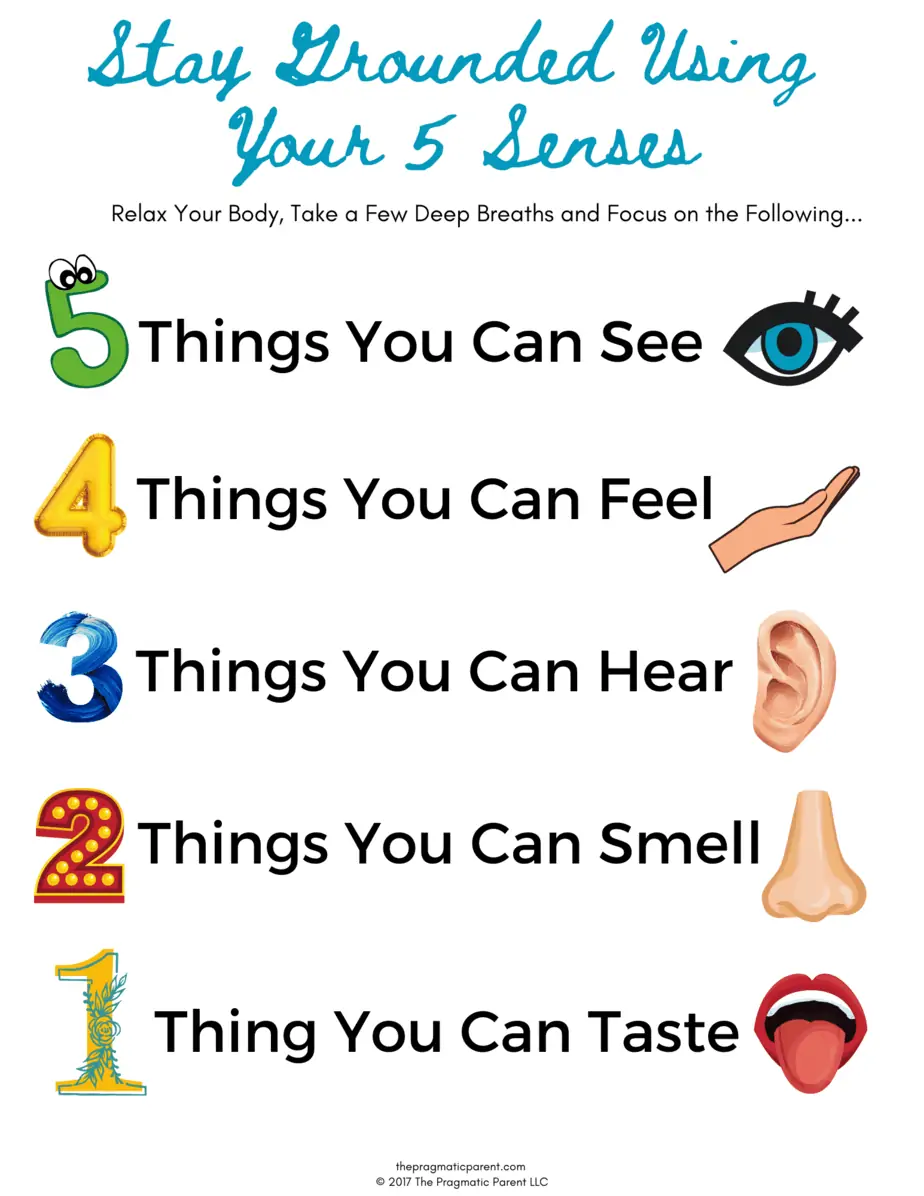Inside this post: Learn to rephrase requests and correct misbehavior effectively. Don’t point your finger and make empty threats you can’t keep.

Why Empty Threats Don’t Work (And What To Do Instead)
When a child misbehaves, it’s easy to get yourself worked up and respond in a flurry. Empty threats are a parent’s way of trying to regain control over a situation but are often made without much thought or intention.
Apologize to your brother, or I’ll take away your phone.
Finish your broccoli, or you won’t get to go to soccer practice.
If you don’t brush your teeth, you’ll make us late for school.
These are all examples of empty threats because chances are, you won’t be able to stick to them! Or they don’t have enough power to actually elicit the behavior you want to see from your child.
While they work here and there, children quickly learn when to take you seriously or not in your threat. Empty threats are common for parents who don’t like being the bad guy or upsetting their child. They’re quick to please and give in!
However, there are better ways to get good behavior out of your child without the need to say empty threats. Here’s what you need to do instead!
Consequences vs. Empty Threats
You can get positive or negative results from any kind of behavior. It all depends on how you, as a parent, respond and handle a situation. You can make rainbows out of dark days!
Consequences are used to reinforce good behavior and change bad behavior. They’re a direct result of a decision your child has made. They’re used to give direction and structure to children.
Threats, on the other hand, do more harm. Threats are when you try to get your children to do something.
As parents, you should never have to make your child do something. It creates a mentality of parents vs. children. Really, you want to encourage them to do things to make things better or to help their surrounding environment in a positive way.
Why Empty Threats Don’t Work
Empty threats are only going to make bad behavior worse. When you use a threat, it usually backfires. The child feels more upset at the thought of the threat and that you’re going against their wishes.
Every time you use a threat, it’s only going to get worse for the next time. It creates a bad cycle where children are taught to misbehave. The kids will train the parent to eventually back down and let them do their own thing.
Over time, it becomes increasingly difficult to think of threats that actually will work. When parents overuse threats, they lose their power.
Instead, parents should work on creating a cooperative relationship with their children. You’re aiming to lessen the defiant tendencies, and empty threats will only increase them.
The strongest tool to get good behavior out of your children is creating a strong bond with them. You want a team mentality, not the us versus them. As a team, your child will feel understood, safe, and willing to accept help and advice from you!
How to Make Effective Consequences
Parenting without threats can be hard to do immediately when it has become so ingrained into how to better your child’s behavior. The best alternative is to apply effective consequences.
The first part of applying effective consequences is by rewarding their positive behavior first. Through positive affirmations and praise, always encourage their good behavior when you see it. For example, “Thank you for picking up those toys, that’s really helpful,” or “It was very nice of you to share your markers with your brother. Now you both can color!”
This makes your child much more likely to turn to good behavior instinctively.
Every household should also have rules that are well known. It is helpful to list the household rules where they can be seen and referred to. It should also be very clear what will happen if the rules are broken. Kids will know what to expect when they misbehave and know that you will follow through on those actions. You need to be consistent about when you do these consequences.
Consequences should only be used for very bad misbehavior like hitting or being destructive. Otherwise, know when to pick your battles. Ignore the smaller stuff and, instead, work on reinforcing positive behavior with praise.
Examples of parenting without threats
So, what does all of this mean exactly? You can reword any kind of empty threat into a positive experience for a child. Here are a few examples of how you can turn empty threats into a more effective question just by flipping the words around.
“Clean up your toys, or you won’t get a bedtime story tonight.”
Picking battles at night when your child is tired and cranky (and you likely are too) won’t help anyone out. This also negatively affects your child by taking away time for them to settle down, one-on-one time to spend together, and valuable learning time.
Instead, take a look at this sentence: “I’m tired, and it is bedtime. Could you help me clean up these toys so we can go and read a bedtime story together?”
This asks for the same help but in a much kinder way. It’s phrased so that together you’re a team and asking for help rather than demanding it. In turn, you’ve turned a bedtime story into a reward rather than an empty threat.
“On of the count of 3, you’re going to put your jacket on, or I’m leaving without you.”
The countdown method almost never works. The first few times, your child might listen, but it easily becomes overused and turns into an empty threat. This is also clearly an empty threat as your child very well knows you won’t leave without them. For little ones, it’s never a good idea to instill that fear in them.
Instead, try something like, “When we get home, you can keep playing with your teddy bears. But right now, we need to get some groceries so I can make dinner. Could you please come and put your jacket on?
Starting a sentence with when promises your child a reward for getting something done. You’re outlining the importance of putting on the jacket and including them in your plans.
“If you don’t do your chores, you won’t get to go to Maya’s birthday party.”
This is an example of a fairly large threat that might not match the misbehavior. Maya shouldn’t have her birthday ruined by your child not attending! Likely, your child will get to go to the birthday party no matter what, so you don’t want to threaten to take something away that you ultimately won’t follow through on.
Instead, try, “After you finish your chores, I’ll drive you to Maya’s birthday party.”
This rewording is such a minute detail but makes all the difference. Once again, it’s no longer an empty threat anymore by using the word after instead. The birthday party has now become a reward for doing their chores.
Try to Understand Why They’re Acting this Way
Your child isn’t misbehaving just for the heck of it. Oftentimes, there’s also a greater reason behind misbehavior and a child acting out. Often, there’s an emotional reason behind it. Whether your child is aware of it or not.
A child should also feel safe to share that emotion with you. You need to stop them when they’re behaving poorly and do so in an honest, loving way. Try to calm them down and talk it through with them.
If you know certain situations will set them off, avoid them and stop the behavior before it happens. For example, if a child throws a tantrum every time you ask them to do their chores, take a break from it. Regroup and figure out a different plan to encourage them to help around the house, such as implementing a daily routine where it’s expected after school every day.
How to Motivate a Child who Doesn’t Care
Sometimes, kids are completely unmotivated to do anything. Not only will they not want to do their homework or chores, but they will drag their feet on going to school, piano practice, or even getting ready for bed at night.
As a parent, getting your child to do anything can feel like a battle. If they aren’t motivated by rewards, even the most careful wording of a request and all the patience in the world won’t get them to budge. In this case, there’s often something larger going on. Look into their mental well-being, any stressors they might be experiencing, or even learning disabilities that could affect them and their motivation.
There are many reasons why your child may refuse to listen to you. If you’re still struggling to get your kids to pay attention to anything you say or ask, check out my eBook Get Kids to Listen Without Yelling or Bribes. In it, I take deeper dive into rewarding your children with positive attention and how our own behavior as parents could play a role in misbehavior.
It’s never too late to change your own parenting style!
More Articles on Parenting & Parenting without Yelling
- How Can I Get My Kid’s Attention & to Listen to me Without Yelling?
- 6 Positive Parenting Techniques to Use Rather Than Yelling
- How To Help Kids With Bottled-Up Emotions
- 10 Ways To Keep Your Family Connection Strong
- How to Deal with Sibling Rivalry (While Keeping the Peace at Home)
- 11 Helpful Tips For Parents With Strong-Willed Children
Want even more?
Shop All Parenting Resources
Shop all of our parenting resources from self-regulation tools and managing big emotions to building self esteem and confidence. There are resources for all seasons of life!








